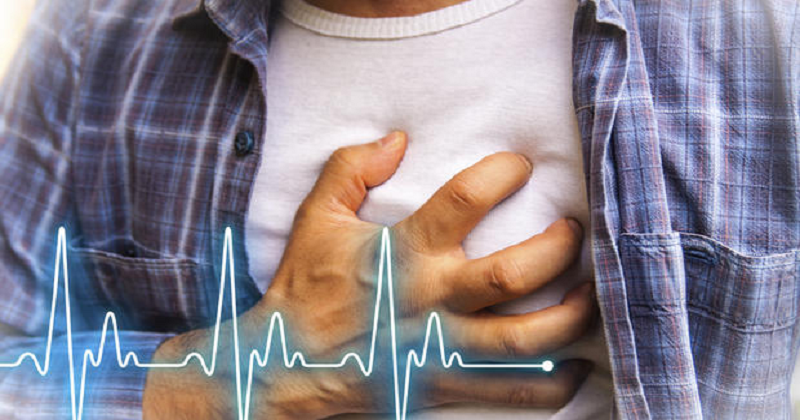
The sooner you recognise the signs and symptoms of a heart attack and get treatment. Heart attack, or myocardial infarction, is the number one killer of both men and women.
A heart attack is a medical emergency in which the supply of blood to the heart becomes blocked, often as the result of a blood clot. Other terms used for a heart attack include myocardial infarction, cardiac infarction, and coronary thrombosis.
A heart attack occurs when one or more of your coronary arteries become blocked. Over time, a coronary artery can narrow from the buildup of various substances, including cholesterol (atherosclerosis). This condition, known as coronary artery disease, causes most heart attacks.
Chest discomfort, manifest as pain, fullness, and/or squeezing sensation of the chest
Chest pain is the hallmark symptom of a heart attack, although it can take many different forms. In other cases, chest pain may not occur at all. The characteristic chest pain of a heart attack has been described as a sense of pressure, squeezing, fullness, or pain that starts in the centre of the chest. The pain or discomfort typically lasts more than a few minutes, or it may go away and then return. It can spread down the arms, to the back, or to the head and neck. Both women and men report chest pain as a primary symptom of heart attack, but women more often than men are likely to have some of the other symptoms, such as nausea, jaw pain, or shortness of breath, that are described below.
Jaw pain, toothache, headache
The pain of a heart attack can spread down both arms, to the jaw or head, or to the back. Some people report tooth pain or a headache as a symptom of a heart attack. It is possible to have these types of pain without chest pain during a heart attack.
Shortness of breath
Feeling short of breath or like you are gasping for air is a common symptom of a heart attack. Shortness of breath, or difficulty breathing, is medically known as dyspnea. Shortness of breath may occur before or during the chest pain of a heart attack, and in some cases, it may be associated with other heart attack symptoms without any chest pain.
As with men, women’s most common heart attack symptom is chest pain or discomfort. But women are somewhat more likely than men to experience some of the other common symptoms, particular shortness of breath, nausea/vomiting, and back or jaw pain.
Nausea
Nausea or feeling sick in your stomach is a less common but possible symptom of heart attack. Sometimes belching or burping can accompany nausea, and some patients have described a feeling like indigestion associated with a heart attack. Women are more likely than men to report these less typical symptoms of heart attack, and some patients have described feeling as though they are developing the flu.
Vomiting
Nausea that accompanies a heart attack can become so severe that vomiting occurs.
General epigastric (upper middle abdomen) discomfort
Sometimes the pain of heart attack is described as stomach pain or pain in the middle of the upper abdomen. The pain usually feels more like the discomfort of heaviness rather than sharp, stabbing pain, and the pain tends to persist more than a few minutes. This can occur with or without pain in the true chest area.
Heartburn and/or indigestion
As mentioned previously, some people experiencing a heart attack can have belching and burping and describe a feeling of indigestion. Likewise, the pain and pressure of a heart attack may occur in the epigastric or upper middle abdominal area, similar to the pain of heartburn.
Arm pain (more commonly the left arm, but may be either arm)
The chest pain of a heart attack can spread, or radiate, down one or both arms and to the shoulders. This often happens, and the pain may even extend to the wrist and fingers. This is most common on the left side of the body but it can also occur on the right side.
Upper back pain
The upper back is another common location for the spread of the pain from a heart attack. Most commonly, back pain that stems from a heart attack is described as occurring between the shoulder blades.
General malaise (vague feeling of illness)
A feeling of being generally unwell or like you are coming down with an illness can accompany a heart attack. This can be described as fatigue or even lightheadedness, with or without fainting. Some people will experience severe anxiety or panic during the heart attack. This has been described as feeling a sense of doom, as one experiences with a panic attack.
Sweating
Sweating, or perspiration, can accompany a heart attack. Some people have described feeling like they are breaking out in a cold sweat.

Post Your Comments